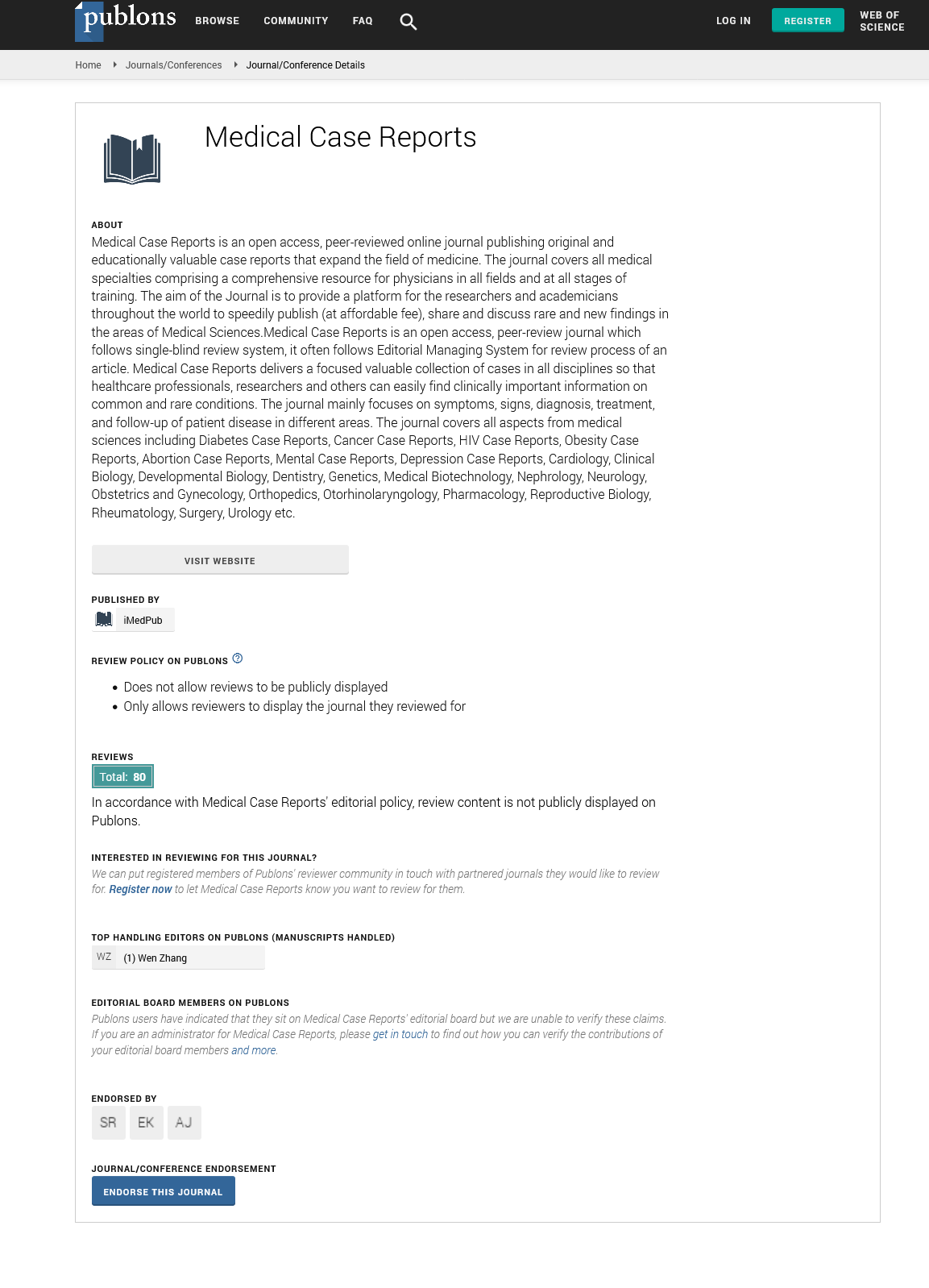Abstract
Endoscopic Biological Glue Injection for Treating Multiple Staple-Line Leaks and Dehiscence Following Laparoscopic Sleeve Gastrectomy ÃÆâÃâââ¬Ãâââ¬Å A Case Report and Review of the Literature
In the past decade laparoscopic sleeve gastrectomy (LSG) has become the primary restrictive procedure in bariatric surgery. LSG offers an excellent outcome with regards to weight loss and comorbidity reduction. LSG is a restrictive procedure without the mal-absorptive component present in other bariatric procedures. It involves resection of two-thirds of the stomach to provide increased satiety and decreased appetite.
Sleeve gastrectomy for weight loss was first described by Marceau in 1993 as a component of biliopancreatic diversion. Laparoscopic sleeve gastrectomy (LSG) was performed as a component of biliopancreatic diversion with duodenal switch (BPD-DS) in 2000 by Ren et al. and subsequently used as the initial stage of a two-staged approach for super-morbidly obese patients.
Here, we describe a case of a an 18-year-old male presented to the emergency department complaining of a 3-day lasting abdominal pain, a week after undergoing LSG with an otherwise uneventful post-operative period.
Author(s):
Leonid Maizels, Ahmad Assalia, Iyad Khamaysi and Ahmad Mahajna
Abstract | Full-Text | PDF
Share this

Google scholar citation report
Citations : 241
Medical Case Reports received 241 citations as per google scholar report
Medical Case Reports peer review process verified at publons
Abstracted/Indexed in
- Google Scholar
- China National Knowledge Infrastructure (CNKI)
- Cosmos IF
- Directory of Research Journal Indexing (DRJI)
- WorldCat
- Publons
- Secret Search Engine Labs
- Euro Pub
Open Access Journals
- Aquaculture & Veterinary Science
- Chemistry & Chemical Sciences
- Clinical Sciences
- Engineering
- General Science
- Genetics & Molecular Biology
- Health Care & Nursing
- Immunology & Microbiology
- Materials Science
- Mathematics & Physics
- Medical Sciences
- Neurology & Psychiatry
- Oncology & Cancer Science
- Pharmaceutical Sciences


